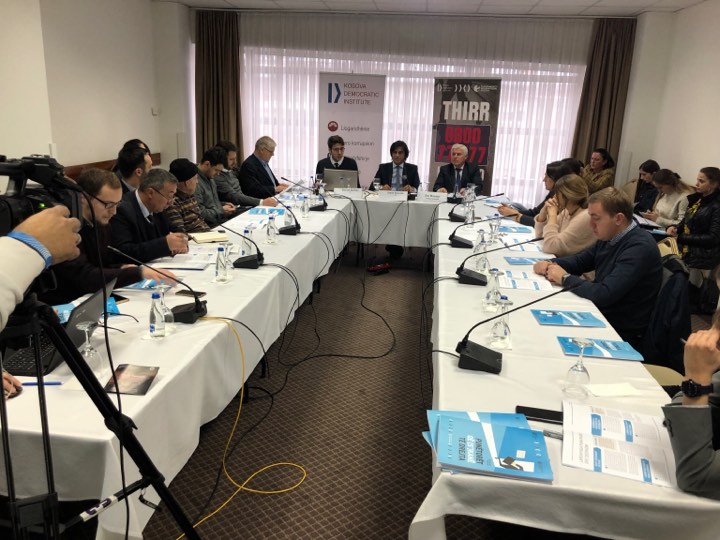


Under the “Anti-Corruption Week 2017”, the Kosovo Democratic Institute (KDI) released today the report called “Employees who have no rights” as a summary of cases reported by citizens at the KDI free helpline which provides free legal assistance on cases of corruption.
Discrimination in competitions, non-payment of wages and pension contributions, unpaid dismissal, job degradation, lack of efficiency in adjudicating employee-related issues, public competition as an opportunity for party employment, etc., are the issues addressed by this report through concrete cases that testify numerous violations of labor law.
“The large number of cases and their linkage with violations of labor law has encouraged KDI to seriously address the issue of employment, procedures applied in employment and the interference of corruption, particularly nepotism as a more pronounced form of corruption in employment, said the executive director of KDI, Ismet Kryeziu.
“KDI will continue with its program of providing free legal advice to all witnesses, victims and corruption whistleblowers. The findings of the report are an obligation for us to push forward the recommendations and to initiate actions that will improve the situation in this direction, “Kryeziu added.
While Florent Spahija from KDI, stressed that the discriminatory criteria placed in public competitions are one of the most common forms that KDI reviewed that were reported by citizens. “From what KDI has observed, discrimination has been caused by nepotism, conflict of interest or other corruptive forms. In none of the cases that KDI provided legal advice to the parties, institutions that have been violating, were not punished by the supervisory authorities of workers’ rights, “he said.
Cases testify that private companies do not pay wages regularly and on time. Moreover, they pay less than the average salary in Kosovo. Even non-payment of pension or trust contributions according to Spahija is another form often reported in KDI. “In spite of legal obligations, private companies cannot afford paying their pensions to the retired, as wages are paid in cash,” he said.
Despite the fact that the Labor Law or the Civil Service has foreseen criteria on how to exclude and degrade at work, according to him, often the private and public sectors do not respect the laws. “There are times when the worker because of a talk with colleagues about banal issues has been removed from work without going through any of the procedures that the Labor Law has foreseen,” he said.
He further said that the delays of courts in resolving various issues caused delays the issues of workers who are on trial.Another common form of violations during the employment procedures according to Spahija is the fixing of vacancies to favor persons affiliated with political entities in power. “In some cases, vacancies have been canceled by law enforcement institutions, but in many cases despite the cancellation, the public institution has continued to favor their person and the next competition has been adapted to the CV of the person they would like to accept by not given the principle of merit and professionalism, “he said. Whereas Isa Hasani from the Institution of People’s Advocate emphasized that this institution collects data regarding violations of workers’ rights and in this regard have received 42 complaints from the private sector as well as 228 complaints from the public. “In the private sector, the situation is very discriminatory. Whereas public sector complaints are related to employment procedures, while in the private sector there are not many complaints regarding the start of work as the law leaves the private sector a lot of room for the choice of employee, “said Hasani among others.